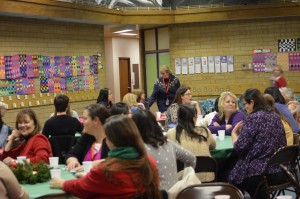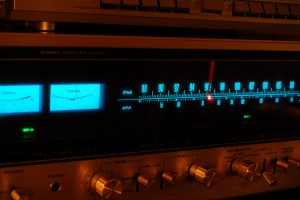
A List of Storytelling Resources for Teachers – Our thanks for all you do
It’s the season for giving thanks and at the Timpanogos Storytelling Institute we are grateful for the many teachers and librarians who touch the lives of students with their storytelling. To show our appreciation, we have compiled a list of resources to help you enhance your storytelling.
Whether you are a teacher, a librarian, or a parent you know that storytelling is one of the best tools to engage students and get them involved in active learning. We are all hardwired for stories. Current research supports this theory and offers new resources to educate the educators on this powerful tool.
“(Storytelling) is unsurpassed as a tool for learning about ourselves, about the ever-increasing information available to us, and about the thoughts and feelings of others,” says The National Council of Teachers of English “Guideline on Teaching Storytelling.” Check out this helpful resource here.
Further evidence of the impact of oral storytelling on learning can be found at Storynet -Advocacy.org which has compiled a list of research papers and quantitative studies.
So with that in mind, here is a list of resources that will help you 1) enhance your lessons through storytelling, 2) engage the students in active learning, and 3) explore the resources available to you through the storytelling community. This list is in no way comprehensive but it’s a good start.
- Resources to help you enhance your lessons with storytelling. I’m not talking about becoming good at reading stories aloud, although that is a worthy goal, but about using personal, traditional or historical stories to illuminate a subject. There are a number of online resources to help you develop your skill as a storyteller.
- Edutopia’s article “Why Teachers Need to Be Great Storytellers”
- The Storytelling Institute offers “A World-Wide List of Courses In and/or About Storytelling Taught at Colleges and Universities.” Last updated December 2010.
- Teaching as Story Telling: An Alternative Approach to Teaching and Curriculum in the Elementary School by Kieran EganAmazon.com: Teaching as Story Telling: An Alternative …
2. Resources for creating opportunities for your students to tell their own tales. Students learn by doing, so create storytelling assignments which are performance-based or technology-based. Performance-based storytelling projects help them develop confidence in public speaking, while technology-based projects are always exciting for students and help them to develop needed computer skills.
- Myth-Off – A storytelling competition where four storytellers battle with mythologies. For more information, click on this article from the National Storytelling Network.
- Classroom Storytelling Festival – Pro Teacher offers this lesson on organizing a mini festival and tying it into the curriculum.
- Another resource for organizing a school festival is the article “Kids as Storytellers: Let the Festival Begin! Or, Establishing a Storytelling Culture at an Elementary School” By Darlene J. Neumann.
- Old Time Radio Show – With this lesson from Story Arts you can create a radio show using your school’s PA system.
- Stop Motion animation– Stop motion is an exciting option for students to prepare and tell a story. This website offers a free, simple-to-use software download for MAC. Other options for technology-based storytelling presentations include videos and voice recordings.
- Tall Tales for Upper Elementary/Middle School – This lesson is a Kennedy Center ARTSEDGE lesson.
- Storytelling: Oral Traditions – This is one of four storytelling lessons from PBS Learning Media. The other three lesson plans include Tales of Everyday, Performance and Art, and Writers’ Workshop Lesson Plan.
- Story Arts: Storytelling in the Classroom has a website with free lesson plans, a story library, and curriculum idea exchange.
- Story by Story: Creating a Student Storytelling Troupe & Making the Common Core Exciting – This is a book written by Karen Chace who also has a wonderful website for storytellers and teachers alike that is filled with practical tips that are backed by the latest research. One example is her article, Gardner’s Multiple Intelligences and Their Applications to Storytelling.
- Tim Shepard’s Storytelling Links for Teachers is another great resource that provides a multitude of resources for teachers and librarians.
3. Create opportunities for your students to listen to great tellers
- Utah State Office of Education Professional Outreach Program to Schools (POPS) – Timpanogos Storytelling is offering free storytelling events at Utah schools. Due to high demand, our spaces for the 2014-15 school year are filled and we are no longer accepting applications. However, if you would like to be contacted about visits in the 2015-16 school year, please feel out the form below or contact Eliot Wilcox about questions at ewilcox.timpfest@gmail.com or 801-228-1350.
- The National Storytelling Network has a comprehensive directory of storytellers which can be used to schedule a storyteller to visit your school.
- If your school is in Utah County, a storyteller can be scheduled for an assembly at your school during the Timpanogos Storytelling Festival. The coordinator is Stephanie Ashton, or anytime during the school year by contacting a storyteller directly.
- There are a number of storytellers who have posted YouTube videos of their stories. One example is David Heathfield who tells Juan and the Magic Tree (Filipino)
- The Orem Public Library has an impressive collection of storytelling resources available for everyone. Videos, audio recordings and picture books can all be found in their online catalogue.
Check out the Timpanogos Storytelling Festival website for a schedule of upcoming events, and check your local library’s calendar of events.
Do you have some resources that you use to enhance storytelling in your classroom? Please share them with us.

